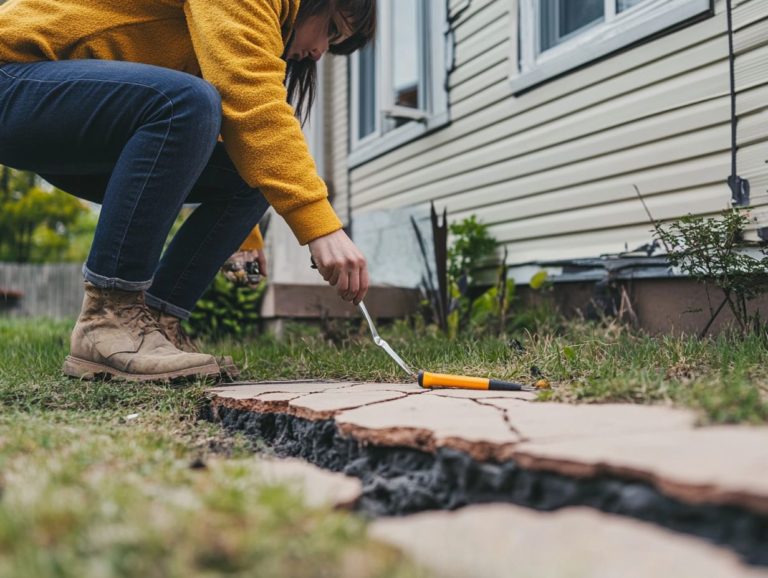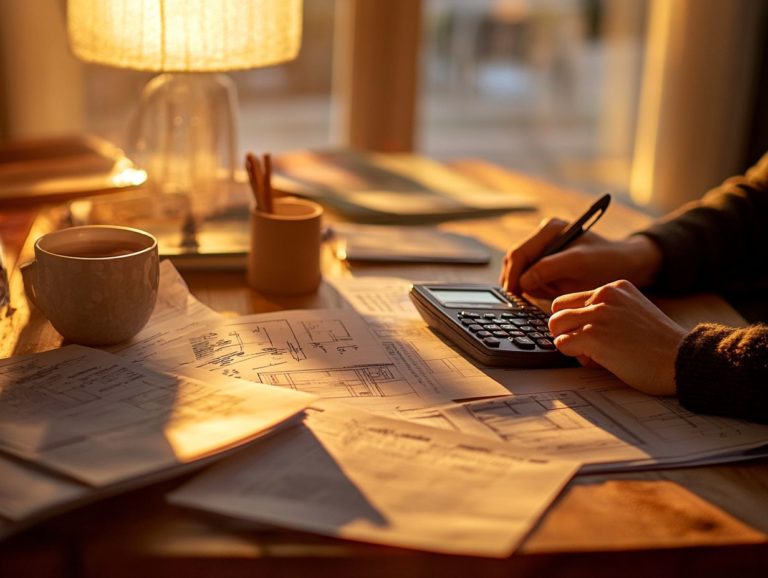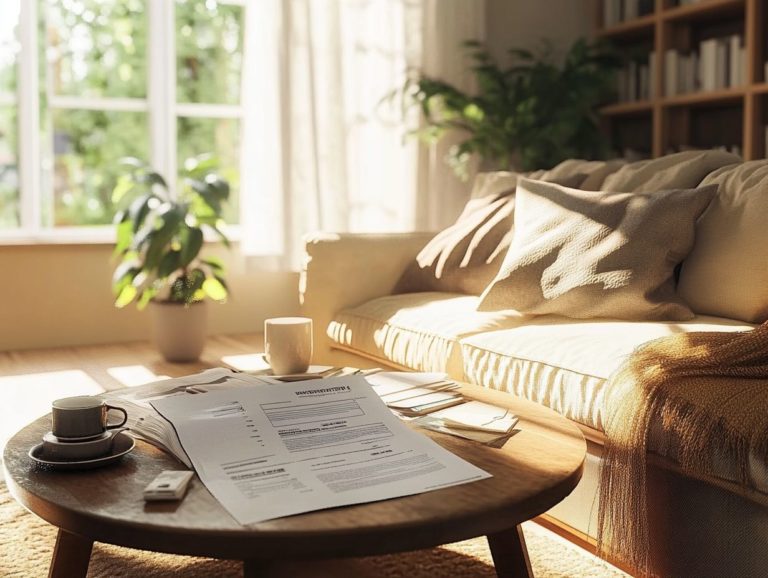The Role of Home Inspections for First-Time Buyers
Purchasing your first home is undoubtedly an exhilarating journey, albeit one that can feel a bit daunting at times.
A pivotal step in this process is the home inspection a comprehensive evaluation that grants you insight into the property’s condition.
This guide will explore the significance of home inspections for first-time buyers. It outlines what you can expect during the process and how to interpret the results effectively.
By the end, you will possess the knowledge needed to navigate negotiations with confidence and maintain your new home with ease.
Contents
Key Takeaways:
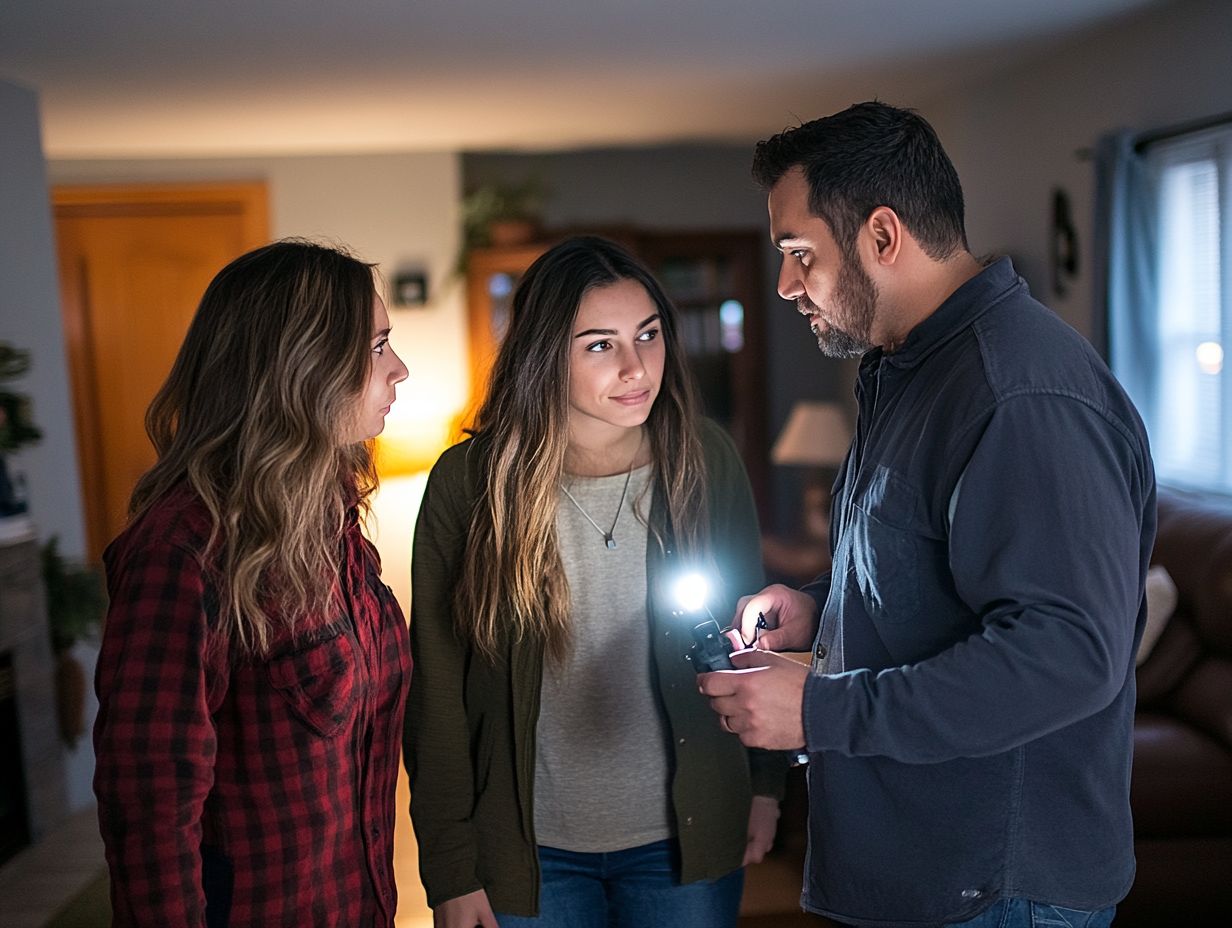
A home inspection is a crucial step in the home buying process for first-time buyers. It helps identify potential issues and needed repairs. Understanding the role of home inspections in home sales provides peace of mind, negotiating power, and helps avoid unexpected expenses after purchase.
First-time buyers should understand the inspection process, what inspectors look for, and the role of home inspections in buyer confidence, as well as how to interpret and use the inspection report in negotiations.
Unlocking the Secrets of Home Inspections
Understanding home inspections is essential for you, particularly if you are a first-time homebuyer. This process provides you with a comprehensive report on the property’s condition and highlights potential issues in critical systems such as the foundation, roof, electrical, and plumbing. Additionally, knowing the role of a real estate agent for first-time buyers can further assist you in navigating this important step.
A skilled, licensed inspector conducts a careful inspection to uncover defects and safety concerns, empowering you to negotiate effectively and make informed decisions about necessary repairs and maintenance.
What is a Home Inspection?
A home inspection is your opportunity to gain a professional evaluation of a property’s physical components, including important systems such as heating, ventilation, and air conditioning (HVAC), plumbing, and electrical.
This assessment is conducted by a skilled inspector who helps you identify potential problem areas and defects.
This comprehensive evaluation is a vital step in the real estate transaction process, ensuring you are well-informed about the property’s condition before making a purchase.
During the inspection, the inspector will carry out a meticulous walkthrough of the home, examining its structure, roof, insulation, and exterior components. They will also look for signs of water damage or pest infestations.
After the inspection, you’ll receive a detailed report outlining the findings, along with recommendations for necessary repairs. The highlighted issues can range from minor cosmetic fixes to more significant repairs that could be costly.
Addressing these concerns is crucial to protecting your investment and ensuring that your home remains a safe and secure environment.
Why Home Inspections are Important for First-Time Buyers

For first-time homebuyers, the role of home inspections in real estate is essential. They reveal hidden safety concerns and environmental contaminants, equipping you with the insights needed to negotiate confidently.
By identifying potential dealbreaker defects, you can address them before finalizing your purchase agreement, ensuring a sound investment.
Benefits of a Home Inspection for First-Time Buyers
The advantages of a home inspection for you as a first-time buyer are substantial. You’ll gain invaluable feedback on the property’s condition and understand the typical costs associated with potential repairs, especially by understanding the home inspection process for buyers.
This process empowers you by revealing any hidden issues that might not be apparent during initial showings, such as electrical or plumbing concerns. By comprehending these details, you can budget effectively for future repairs and maintenance, ensuring you’re not caught off guard later on.
This knowledge instills confidence in your investment choices, enhancing your decision-making process. With the inspection findings in hand, you’ll be in a strong position to negotiate repairs or even reconsider your options.
This not only paves the way for a smoother home-buying journey but also ensures that your investment remains sound.
The Inspection Process
The inspection process entails a careful check of the property, guided by a detailed home inspection checklist. A qualified home inspector will evaluate all major systems, including the roof, foundation, plumbing, and HVAC (Heating, Ventilation, and Air Conditioning) systems.
It’s advisable for you to attend the inspection. Doing so will provide invaluable firsthand knowledge and a deeper understanding of the property’s condition.
What to Expect During a Home Inspection
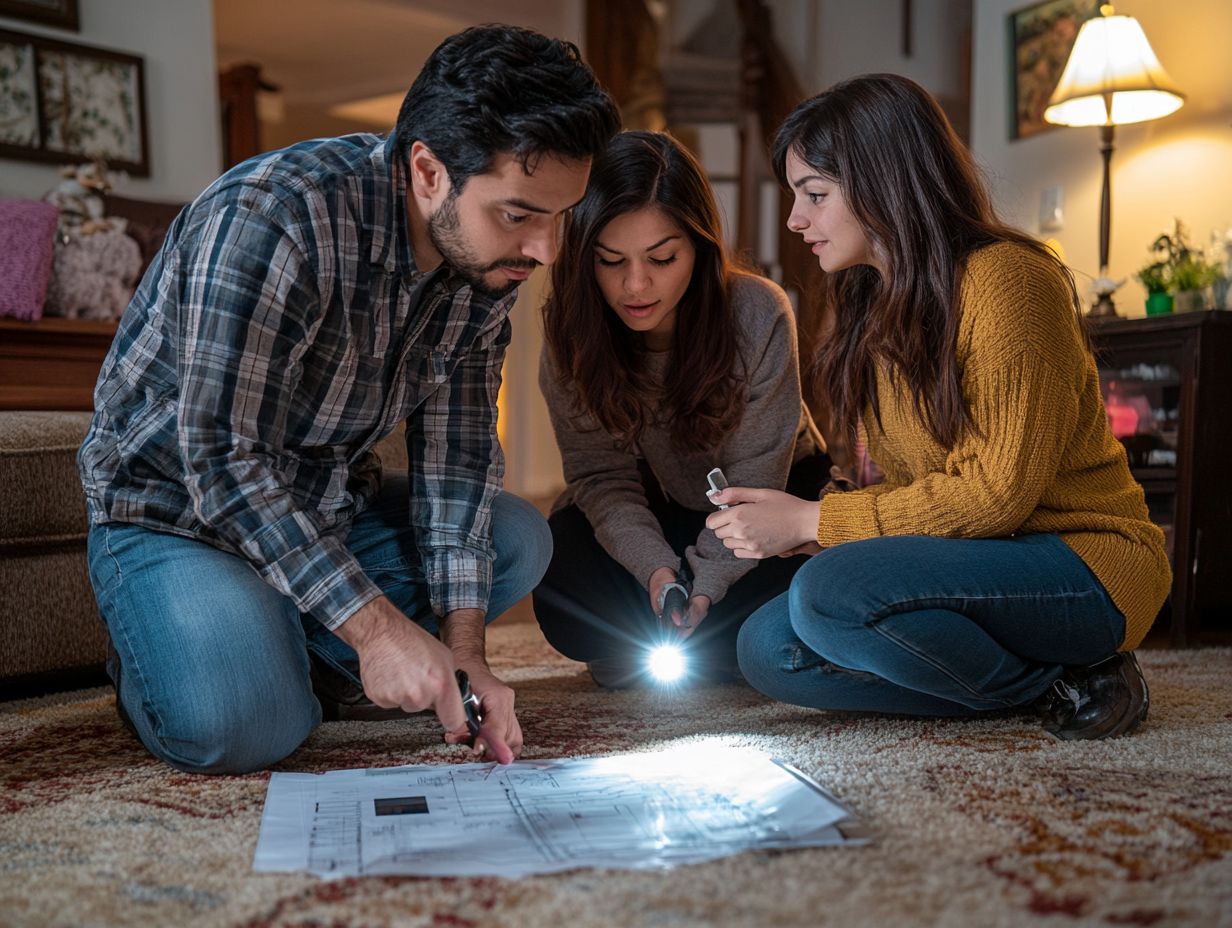
During a home inspection, you can expect a professional home inspector to conduct a thorough check of the property s key systems, including plumbing, electrical, and the foundation. They will identify any defects and compile their findings into a detailed report.
This comprehensive assessment is essential. It ensures you re fully informed about the condition of the house before making your purchase decision.
Inspectors dive deep into heating, ventilation, air conditioning systems, roofing, and visible insulation.
Any defects or areas of concern will be meticulously documented, often accompanied by high-resolution photographs for clarity. This inspection report will not only serve as a powerful tool for negotiation but also as a valuable resource for future maintenance.
It helps you understand the necessary repairs and improvements that may be needed down the line, to help you make informed decisions about your new home.
What Home Inspectors Look For
As a home inspector, you meticulously examine every detail of a property, focusing on critical areas like the roof, electrical system, plumbing, and foundation.
Your keen eye identifies potential defects and uncovers safety issues that may significantly influence a buyer’s decision.
Common Areas and Components Inspected
In terms of home inspections, you can expect a thorough examination of common areas and components like the roof, HVAC system, plumbing, electrical system, and foundation. Each of these elements is vital for your home’s safety and functionality.
These inspections are vital to protect your long-term investment!
Inspectors will closely evaluate the roof for any signs of damage or wear that could lead to leaks or structural problems down the line.
The HVAC system undergoes a careful check to ensure it operates efficiently, providing you with optimal heating and cooling, which ultimately contributes to your comfort and lowers your energy bills.
In plumbing inspections, the focus is on identifying leaks, checking water pressure, and ensuring pipe integrity to prevent costly water damage.
The electrical system is scrutinized for outdated wiring, safety hazards, and overall performance, all essential for minimizing fire risks.
Finally, the foundation is inspected for cracks or settling issues, as these can compromise the stability of your entire home.
Interpreting the Inspection Report

Interpreting the inspection report is essential for you as a buyer. This document holds crucial findings and recommendations from the inspector that can significantly influence your negotiation strategies and future maintenance planning.
It’s important to consider the inspector’s communication skills and liability limits, as these factors can affect your overall experience and decision-making process.
Understanding the Findings and Recommendations
Understanding the findings and recommendations in your inspection report is crucial. It reveals insights into defects that need addressing and outlines maintenance requirements for the long-term care of your property.
By thoroughly reviewing these insights, you can prioritize which issues demand immediate attention and which can be scheduled for later repair or routine maintenance.
This strategic approach guarantees the safety and functionality of your home and aids in budgeting for future expenses.
For instance, identifying potential plumbing issues or signs of roofing wear can guide timely interventions, ultimately preserving your property’s value.
You can also leverage this knowledge to negotiate repairs with sellers, ensuring that significant defects are addressed before you finalize the sale.
This comprehensive analysis transforms inspection findings into actionable steps, encouraging a proactive mindset toward your journey of homeownership.
Negotiating Based on the Inspection
Negotiating based on the inspection report can be a crucial turning point for you as a buyer. This is your opportunity to leverage the findings to request necessary repairs or concessions from the seller.
Engaging your real estate agent in this process can be invaluable. They can help amend the purchase agreement to reflect these adjustments effectively.
How to Use the Inspection Report in Negotiations
Using the inspection report during negotiations means you’ll want to spotlight any dealbreaker defects. Utilize the inspector’s recommendations to secure necessary repairs or price adjustments. Clear communication with the seller is essential throughout this process.
Understanding the severity and cost implications of various issues is vital for making a strong case. By prioritizing defects based on their impact, you demonstrate careful attention and showcase your seriousness in negotiations.
When you approach the seller, it s advantageous to present your findings in a collaborative manner. Emphasize how addressing these concerns can benefit both parties. Clear communication is key; using straightforward language conveys the urgency of repairs, while actively listening to the seller s perspective encourages a more constructive dialogue.
This smart approach can unlock amazing results for both you and the seller!
Maintaining Your Home After the Inspection
Maintaining your home after the inspection requires a thoughtful approach to both short-term and long-term repairs highlighted in the inspection report.
Address these issues immediately to protect your investment and ensure that your property remains in optimal condition for years to come.
Essential Home Maintenance Tips
To maintain your home effectively, adhere to the recommendations outlined in the inspection report. Regularly check for safety issues and promptly address any repairs to keep your property in prime condition.
Also, conduct seasonal maintenance checks on key systems, such as HVAC, plumbing, and roofing. This proactive approach can prevent minor issues from snowballing into costly repairs.
For example, cleaning your gutters regularly can help avert water damage, while inspecting smoke detectors is crucial for your safety. During the colder months, wrapping your pipes can prevent freezing and potential bursts.
By incorporating these proactive measures into your routine, you not only protect your investment but also cultivate a comfortable living environment for your family.
Frequently Asked Questions
What is the role of home inspections for first-time buyers?
Home inspections play a crucial role for first-time buyers, helping them assess the condition and potential issues of a property before purchasing it. This process allows buyers to make informed decisions and avoid costly surprises after closing, as outlined in the role of home inspections in real estate transactions.
Why are home inspections important for first-time buyers?
Home inspections provide a detailed evaluation of the property, including its structure, systems, and potential hazards. Understanding the role of home inspectors is crucial for buyers who may not have experience with property ownership.
Who is responsible for scheduling and paying for a home inspection?
The buyer is typically responsible for scheduling and paying for a home inspection. However, in some cases, the seller may cover the cost of the inspection as part of negotiations.
What happens if the home inspection reveals issues?
If the home inspection reveals issues, the buyer can use this information to negotiate repairs or a lower price with the seller. Alternatively, they may choose to back out of the deal altogether.
Can first-time buyers attend the home inspection?
Yes, first-time buyers are encouraged to attend the home inspection. This allows them to ask questions and learn more about the property’s condition and any potential issues, highlighting the importance of home inspections.
What should first-time buyers do after the home inspection?
After the home inspection, first-time buyers should review the report with their real estate agent and discuss any concerns or potential negotiation points. They should also consider the role of home inspections in new construction and getting additional inspections for specific areas or systems if recommended by the inspector.
For more assistance, contact your real estate agent today!

